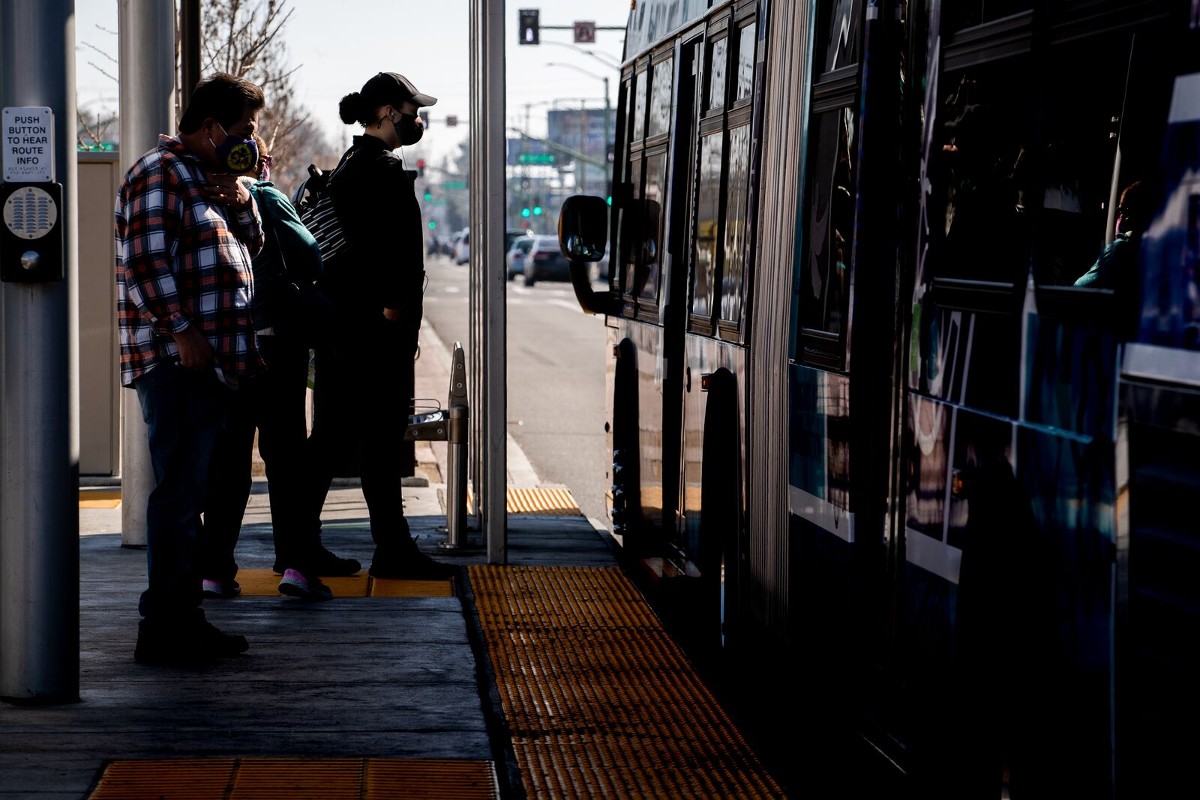Several candidates running for Bay Area transit agency board seats shared their platforms last night at a virtual forum on transportation issues relevant to seniors and people with disabilities.
The candidates were asked how they plan to maintain or improve the quality and consistency of paratransit services, especially with funding sources at their lowest level in years due to drops in ridership during the pandemic. Paratransit services are buses that take low-income elderly and disabled people to and from specific locations, oftentimes to see their doctors or carry out crucial chores. Masking policies on buses and trains were also discussed.
The forum was run by the nonprofit Senior and Disability Action, which advocates for more accessible transit options. This group also recently organized protests against unsafe street conditions in Oakland and San Francisco. Other forum sponsors included the Center for Independent Living and Oakland’s Causa Justa/Just Cause. The Oaklanside live-tweeted the forum as it happened.
AC Transit at-large
The AC Transit at-large seat covers all of Oakland and the rest of the Alameda County and Contra Costa County service area for the bus system.
Joel Young, an Oakland resident, lawyer, and the current occupant of the at-large seat said recruitment and retention of paratransit bus drivers should be a priority. Without enough drivers, there are fewer buses to take people around the East Bay.
“There’s a bus operator shortage here in California, and quite frankly, across the nation, which makes it difficult to attract and retain bus drivers to provide paratransit service,” he said. Young said AC Transit needs to offer better compensation to retain drivers, especially to alleviate congestion during morning commutes.
Alfred Twu, a Berkeley resident and an architect who has attended several of this summer’s protests against traffic violence in Oakland, said it is important to pay drivers more, suggesting AC Transit ask the California Governor for more funding. Twu also noted that paratransit riders suffer service gaps because eligibility for paratransit bus service is based on whether there is regular, non-paratransit bus service also at that same time and place. They want regular bus service to include more weekend and night trips to give everyone more transit options.
“Especially in our suburban areas, so that people don’t feel stranded at home during certain times of the week,” Twu said.
The contest between Twu and Young is one of the most closely watched this year. Young has received endorsements from the Mercury News and the Amalgamated Transit Union (ATU) Local 192. Many prominent bike and pedestrian advocates and organizations are supporting Twu, including former Oakland Bicyclist and Pedestrian Advisory Commission member Midori Tabata, as well as the Alameda County Democratic Party and the East Bay Transit Riders Union.
AC Transit Ward 3
Another key AC Transit board race is for Ward 3, which covers East Oakland and the city of Alameda. Two candidates are vying to take over the seat vacated by current board president Elsa Ortiz. Sarah Syed is an Oakland resident and transportation planner endorsed by Ortiz. Stewart Chen is a chiropractor who has been a city of Alameda councilmember and part of the AC Transit Parcel Tax Oversight committee.
Regarding improving service for low-income people, Syed said the region’s 27 transit agencies needed to work better together and that she would, if elected, consider developing and integrating “community owned and operated systems” to help connect paratransit riders better. She described these as “informal networks that already work when you can get a ride from somebody,” similar to casual carpools. These might also include private company options, she said.
“It’s often preferred and going to be a better experience,” she said about community-driven transit options. Part of developing that idea would be to figure out how much passengers should pay private drivers. At the moment, paratransit riders pay $4 per ride.
Chen said he would consider it irresponsible to promise “free or low fares” to improve service, but he would talk to AC Transit staff to see if it was possible to “maintain the efficiency in the services that we currently provide to our residents.”
Mask mandates on transit?
This past week, AC Transit voted to remove its mask mandate that had been in place for more than two years, including on paratransit buses. The decision upset some riders who are worried about COVID, including elders and people with underlying conditions and with suppressed immune systems. However, proponents of the decision said it’s logical to get rid of the mandate because most riders were not wearing masks anyway, and many drivers were not enforcing the policy.
Most candidates said they would support having the mask mandate for all paratransit services for the indefinite future.
Sarah Syed said she doesn’t support bringing back the mandate on regular bus routes. She said having free masks and hand sanitizer available was a good option.
Chen said he supports having at least a mask mandate for drivers, noting that they are five times more likely to get sick from COVID.
Other questions the forum attendees discussed included how they would ensure blind and low vision people and other disabled people can access wayfinding tools on AC Transit or BART. Some answers to that question included improving audio technology as they get onto buses and easier access to braille pads.
You can watch a recording of Monday’s forum on YouTube.

